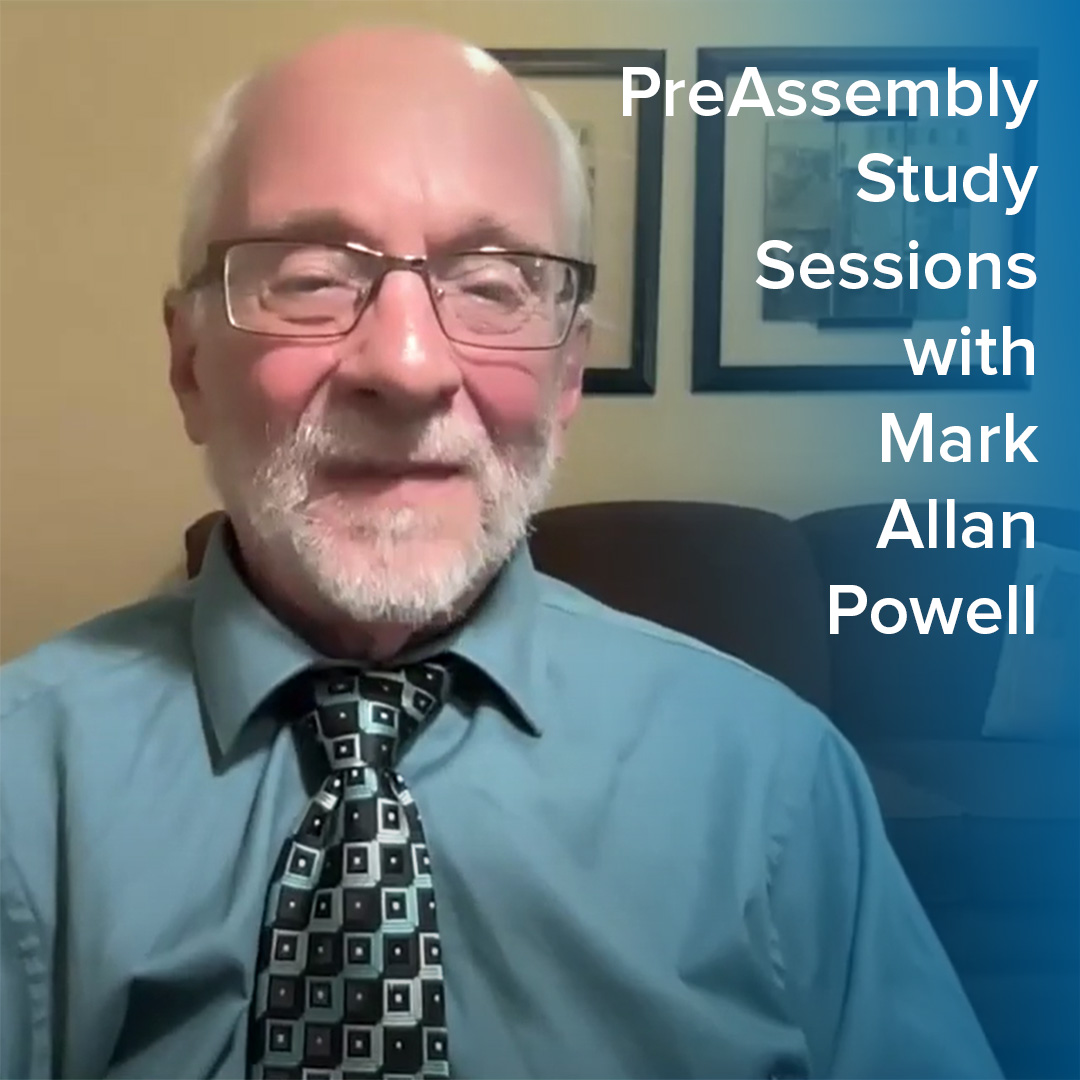BY THE REV. DAVID EDENFIELD

Pastor, Bethlehem, Batesburg-LeesvilleHow do you start a conversation about mental illness? I can tell you from experience, starting that conversation is a lot like writing an article about it, scary! Hello world, my name is David Edenfield, I am the pastor at Bethlehem Lutheran Church in Batesburg-Leesville SC, and I live with mental illness. Wow, simply typing these words on a page for the world to see is light years away from where I was a year ago. But before I get to that, I should probably cover some of the basics. As my counselor tells me, “Baby steps, David, baby steps”. O, I almost forgot the most important part. Make no mistake, I see this article as a love story. I love my congregation and they love me, every quirky, silly, and depressed bit of me. And after this last year, I have begun to discover that starting the walk to the top of a mountain sometimes requires going through the scary forest that surrounds it. And with that, enough, of the preamble, on to my story.
When I was 18, I was diagnosed with what is called today, major depressive disorder. Truthfully, I suffered from depression long before this. Later in my late 30s and early 40s, as the fields of psychiatry and psychology continue to evolve, I was additionally diagnosed with a general anxiety disorder (GAD) and post-traumatic stress disorder (PTSD).
Wait a second, what’s with all these diagnoses all of a sudden? I am glad you asked. The reality is, they were always there. Over time, they just became more pronounced. You see, I was too ashamed to tell people about my violent and traumatic childhood. How do you talk about being shot at when walking to elementary school? Do grown-ups really want to hear about you being repeatedly beaten by groups of kids who were just as broken by sin as the rest of us? So, after my family moved to a new city where things were much better, I bottled it up, I put it on a shelf never to look at again. Problem solved! Or so I thought.
Since it is impossible to cover decades of my life in an article (and who would want to read that!) let’s fast forward to a year ago. In 2018 my doctors wanted to “change my medications”. The only other phrase that has sent more chills down my spine was in 2013 when I was told, “congratulations, you’re having twins”.
So, we changed my medications, and “presto change-o” I was all better. I wish, I really do. If only mental illnesses could be solved with just a pill. That is the second most common phrase I hear in my mental health support groups. The first being, “I wish people didn’t look at me so shamefully.” For me, the hard truth is living with mental illness takes a multi-prong strategy. Medication, support groups, and assistance from professionals.
After the medication change, things seemed okay at first. The reality of most depression and anxiety medications is that they require time to see the effects. In my case, the effects were bad, really bad. That is another difficult truth about these medications, sometimes they have the opposite effect. After talking with people who care about me, I voluntarily committed myself to a hospital so that my medications could be adjusted in an environment where I would not harm myself.
So, there I was, stuck in a hospital and Sunday was fast approaching. What was I going to do? I have to give Bishop Yoos credit (and not just because he is going to read this) he really took the news in stride. “Be honest,” he said. “Do you really think there aren’t people in your congregation who don’t suffer?” Hence, I “took the plunge” as I call it. I told people in the congregation I trusted and they shared the news with everyone. And you know what, the world didn’t stop turning.
Here is where this becomes a love story. In actuality, once people knew this side of me, people started opening up. “I was hospitalized too, pastor” someone whispered in my ear one Sunday on their way out. “We have struggled with our children,” a couple told me on another Sunday. Without even realizing it, the fondness that the congregation and I had for one another continued to grow.
As time went on, I started talking more about my life and diagnoses. Before I knew it, people were suggesting that I talk about this in my newsletters and even from the pulpit. When I did that, even more, people started opening up! Soon, Bethlehem will be having a mental health awareness event, and you can bet in good Lutheran fashion that there will be food.
So, is that all? No. The reality of living with mental illness (mine at least) is that it is here to stay. The road is not an easy one. Two months after the first hospitalization, I had to be hospitalized a second time. But…things are getting better every day (baby steps). The medications that I am currently on have been working well for over 10 months and will hopefully continue to help me alongside my congregation, friends, councilors, doctors, and support groups.
My mental health “highway” has been a long road. Going from hiding in the office on Sunday mornings at my first congregation so I wouldn’t have a panic attack, to bearing a part of my heart for all the world to see. But, thankfully, the ride isn’t over yet!
So, going back to my original question, how do you start a conversation about mental illness? I think it starts with honesty. According to every mental health survey that I have ever seen, there are a lot more people with these types of challenges than you might think. A parent, a child, a friend; people don’t get to choose what illness will affect them. But we do make a choice to let them know that they are loved and not alone in their struggles.
As for me and the people of Bethlehem, I know that there will not always be rainbows and sunshine, but I know now that they really do care for me, and I care for them. And if you are one of the people out there suffering in silence, whether you are in the pulpit or not, I hope that in reading this you will know that you are not alone.
Additional Resources
For more information, perspectives, and a congregational study guide about mental health check out https://www.livinglutheran.org/ using the keyword “mental health”.
For the ELCA social statement and accompanying study guide about mental illness go to: https://www.elca.org/Faith/Faith-and-Society/Social-Messages/Mental-Illness .













